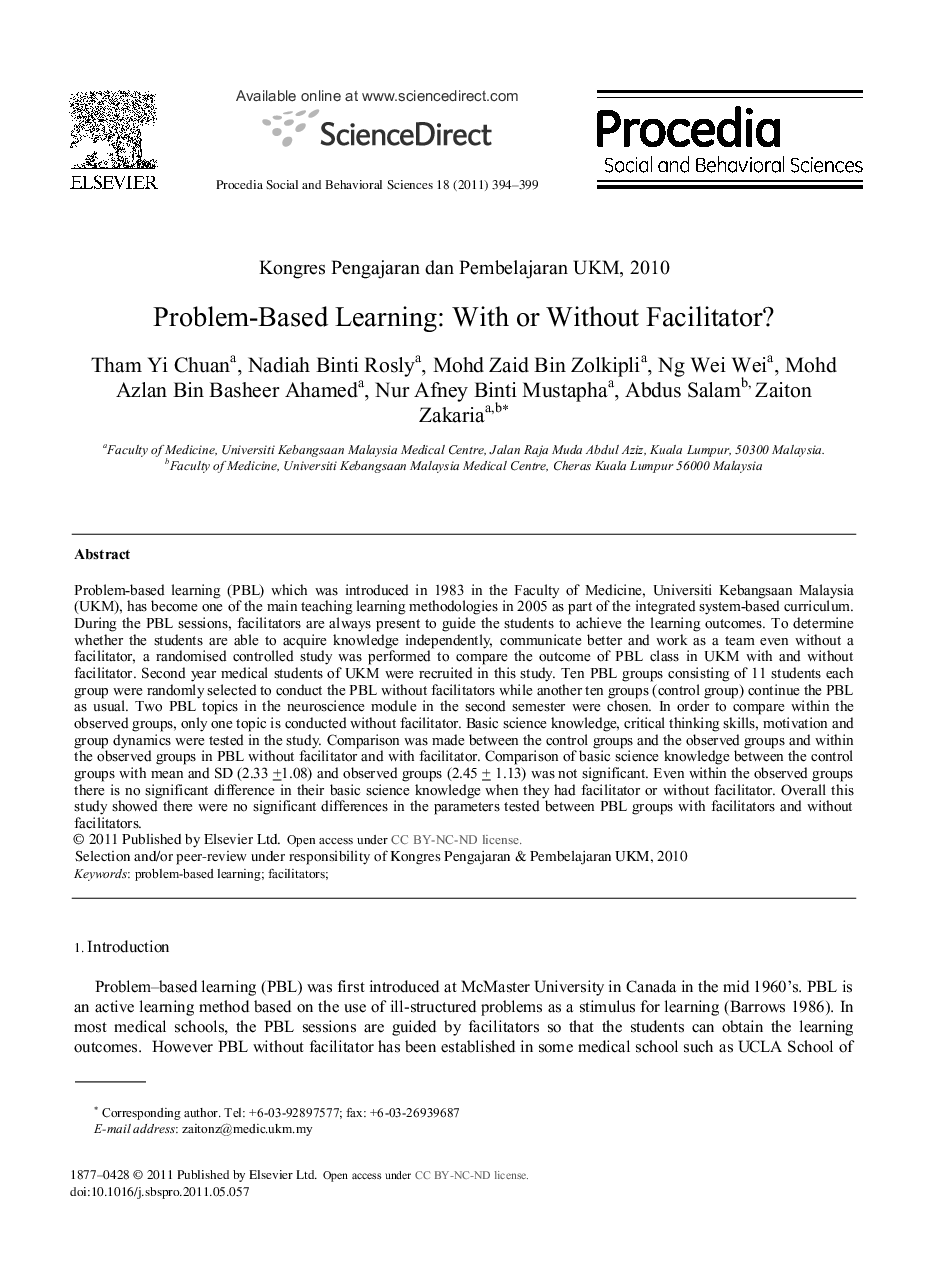| Article ID | Journal | Published Year | Pages | File Type |
|---|---|---|---|---|
| 1124031 | Procedia - Social and Behavioral Sciences | 2011 | 6 Pages |
Problem-based learning (PBL) which was introduced in 1983 in the Faculty of Medicine, Universiti Kebangsaan Malaysia (UKM), has become one of the main teaching learning methodologies in 2005 as part of the integrated system-based curriculum. During the PBL sessions, facilitators are always present to guide the students to achieve the learning outcomes. To determine whether the students are able to acquire knowledge independently, communicate better and work as a team even without a facilitator, a randomised controlled study was performed to compare the outcome of PBL class in UKM with and without facilitator. Second year medical students of UKM were recruited in this study. Ten PBL groups consisting of 11 students each group were randomly selected to conduct the PBL without facilitators while another ten groups (control group) continue the PBL as usual. Two PBL topics in the neuroscience module in the second semester were chosen. In order to compare within the observed groups, only one topic is conducted without facilitator. Basic science knowledge, critical thinking skills, motivation and group dynamics were tested in the study. Comparison was made between the control groups and the observed groups and within the observed groups in PBL without facilitator and with facilitator. Comparison of basic science knowledge between the control groups with mean and SD (2.33 +1.08) and observed groups (2.45 + 1.13) was not significant. Even within the observed groups there is no significant difference in their basic science knowledge when they had facilitator or without facilitator. Overall this study showed there were no significant differences in the parameters tested between PBL groups with facilitators and without facilitators.
